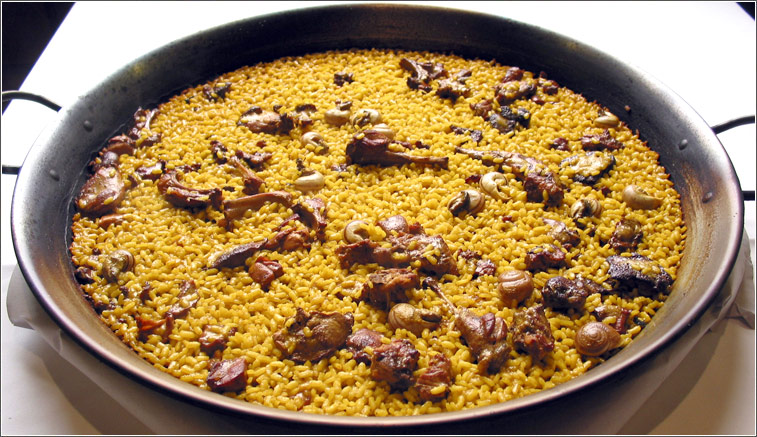We have a garden that I think measures about 1,000 square metres. Small by Spanish country standards but big in British terms. We have a lot of fruit trees such as figs, peach, nispero, almonds, plums, apple, pomegranate, cherry and quince; lots of ivy, lots of pine trees, and plenty more. The trouble is that I'm not much of a gardener. I can tell a tulip from a daffodil from a rose but that's my sort of level. Nature, colourwise, always strikes me as a bit monotonous. When a rose blooms, or the almond trees are in blossom (like now) there's a touch of colour in the garden but I consider the countryside to be lot of shades of green and brown - for most of the year at least. This monotonous colour scheme doesn't help me to decide which of the various green and brown growths are good, nice, desirable plants that I should leave in peace and which are the weeds that apparently deserve to die.
We've spent years living somewhere else as well as Culebrón. After coming back from Salamanca one summer to find the weeds in our garden so thick and high that the chap with the rotavator said he didn't think the machine would cope, we decided it was time to employ a gardener. We asked our friend Geoff to do it. Just a couple of hours each week - to keep the weeds down and the garden tidy.
Now Geoff is British, English in fact. He has a British sensibility about gardens. He likes to see things growing. Maybe some nice veg, something flowering, certainly some variety and things like ground cover to keep the weeds down. He planted things. We had were able to eat homegrown tomatoes and cabbage during the Geoffrey years.
Spanish people very seldom come into our garden. Our friend Pepa came soon after we'd bought the house. She commented on the garden being limpio which means clean. This was because, between the various and obvious plants, there was bare earth where the weeds were being held at bay. Pepa explained to us that this was the Mediterranean way. Bare earth to avoid fires taking hold or spreading.
So, now that we are back in residence, we had the choice. We could build on all the work that Geoff had put in to produce a varied garden or we could slash and burn our way back to cleanliness. I think it was more my decision than Maggie's that we would cut everything back. And basically that's what we started to do in September. At first the jobs were obvious. The Torrevieja weed, which is a groundcovering succulent, was the first to go, then lots of the ivy that was growing beneath the fig trees. Next all the yuccas had to be dug out. We thinned out some of the other plants like cactus and iris and the palm tree and ivy hedge got their regulation trims.
None of it was really gardening. More like navvy work; digging, chopping, ripping and tearing. With the brute force stuff generally out of the way the garden began to look Spanish again. Maggie actually added some new plants and did some gentle pruning - with the help of tutorials from YouTube videos. All I had to contribute was a bit of weeding. That pruning though inspired me. I thought Maggie was being a bit timid about it. I tore up the last patch of decorative ivy over the weekend and, this week, I've been chopping down lots of pine branches.

Vicente, our next door neighbour passed as I hacked the other day. The garden's looking nice he said - very clean. I sniggered. It may be time to put the shears and clippers away, let the compost heap settle a bit and maybe just keep the weeds down. After all, to paraphrase Ecclesiastes "there's a time to plant and a there's a time to prune."






